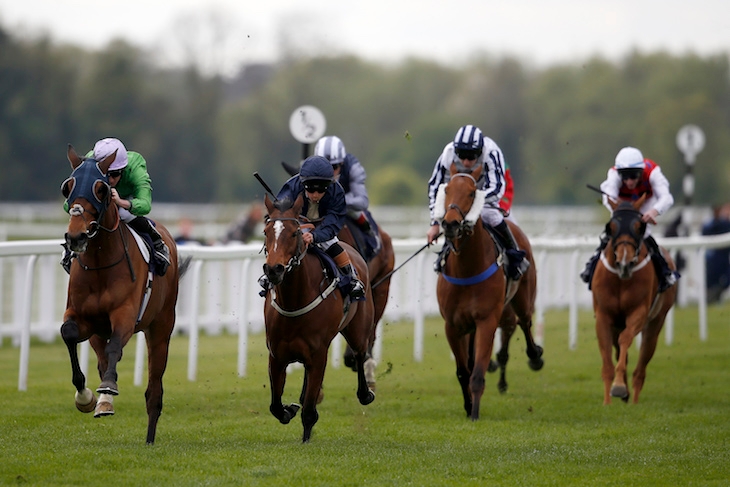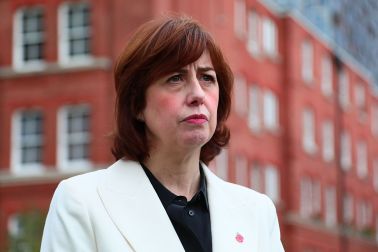Having spent three quarters of my life covering politics and the other quarter following racing, I am often asked what the two have in common. One answer is that politicians are often gamblers. David Cameron tried to solve his party’s divisions over Europe by launching the Brexit referendum and failed spectacularly when an irritated electorate overturned the odds. Despite having a workable majority, Theresa May bet the Tory farm on a snap election seeking to increase it and she, too, lost on an apparent certainty. Playing party political games with the nation’s future, neither deserved any better. Certainly, I find few in racing who believe that Brexit, especially May’s beloved ‘hard Brexit’, is going to help them. Racing’s continual staffing crisis has been eased a little of late by the number of Europeans taking jobs in UK training establishments: if, with the looming end of free movement, European stable staff follow EU nurses and head elsewhere, many yards will be scratching around desperately for grooms and work riders. And what about the free movement of horses? David Davis and his Dexeu negotiators aren’t within a million miles of understanding the complexities to come.
The Racing Post points out that there are some 10,000 horse movements a year between England and Ireland alone of animals being shifted to race or breed. In a hard-Brexit world, with no single market or customs union, those movements will require veterinary health checks and temporary-admission documentation. Imports will have to be processed through Border Inspection Posts, and of the UK’s existing 24 Border Inspection Posts only three, the airports at Heathrow, Gatwick and Prestwick, are approved to import horses. Would you want to be risking money on a horse that had been 48 hours queuing in a horsebox due to ‘temporary staff shortages at the border post’?
The only sensible response to such dreary preoccupations was to put my own betting boots on and take myself to Windsor on Saturday. Views of the racing at Windsor are limited, the grandstands are tiny and the course stages few prestige races, yet it always provides a cheery experience. Hen parties cluster on the lawns; sharp-suited likely lads, who spend more on their haircuts than I do on a case of Pinot Noir, chat up more-than-likely lasses with cheery banter amid the queues for better-than-average food shacks; and the access to parade ring and winners’ enclosure is intimately informal.
The betting markets, too, are always lively at Windsor and after a painful Ascot I had a day to restore the faith. Hopefully, it restored some faith, too, for Turf column readers. Our Twelve to Follow have been slow to take off this year, but on Saturday not only did Ian Williams’s London Prize score for the second time at York at 2–1 but at Windsor Roger Varian’s Morando justified his inclusion in our list on his seasonal debut, doing the business in the Listed Midsummer Stakes at 11–4.
Windsor is a try-out course for many trainers and a visit often fills a few pages in the notebook for the season ahead. It pays to follow the money there and Clive Cox’s Grand Koonta duly landed odds of 1–2 in the six-furlong novice race. Clive thinks him ‘quite nice’ and likely to do better still on firmer ground. There was money, too, for joint favourite African Friend in the five-furlong maiden despite the fact that it was 442 days since his previous run. The burly four- year-old has suffered from knee problems but showed impressive speed, and trainer Henry Candy said, ‘I don’t think he wants to go any further.’ African Friend, as he says, is a ‘fine-looking beast’ and when Henry added, in that quiet way of his, ‘the way he has worked suggests he can win another race or two’, you have to take note.
I was puzzled initially by the money coming also for King Bolete in the 1m 3f handicap but I followed that too despite the presence of one of my old personal favourites, Eve Johnson Houghton’s wonderfully genuine What About Carlo. King Bolete had suffered some heavy defeats and done little in his last two outings. But then I was reminded that he had spent time as a pacemaker for Roger Varian’s star Postponed and was now being tried in cheekpieces to rekindle his enthusiasm. One of the good things about racing at tracks such as Windsor on days of multiple meetings is that it gives opportunities to underused riders such as Jack Mitchell. With What About Carlo, ridden by Charles Bishop, running over a longer distance than he had ever done before, King Bolete’s rider Jack Mitchell kicked away from the field and stole a three-length lead three furlongs out. Bishop understandably didn’t want to tackle him too early and though he closed the gap King Bolete still had half a length to spare at the line. With Mitchell scoring also by a short head on Morando, it was a handy double advertisement for a talented young rider.






Comments